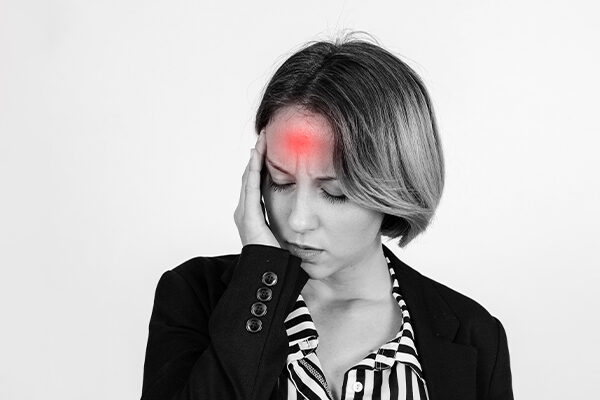Last Updated on July 26, 2024
Examining the Link: Between GERD and Sleep Apnea
Gastroesophageal reflux disease (GERD) and sleep apnea are two prevalent health conditions that can significantly impact one’s quality of life. Despite their seemingly disparate nature, recent research suggests a potential link between these two conditions, prompting further investigation into their relationship. Delving into the connection, does GERD Cause Sleep Apnea? This suggests that shared risk factors, impact on symptoms, potential mechanisms, and overlap in symptoms might play crucial roles in understanding and managing GERD and sleep apnea effectively.
Understanding GERD
GERD is a chronic digestive disorder characterized by the reflux of stomach acid into the esophagus, causing symptoms such as heartburn, regurgitation, and difficulty swallowing.
- Prevalence: GERD is a widespread condition, affecting approximately 20% of the Western population weekly.
- Impact on Daily Life: GERD can significantly impact daily life by causing persistent discomfort, disrupting sleep, and leading to complications such as esophagitis or Barrett’s esophagus. A clinical trial is undergoing at Revive Research Institute investigating new treatment may potentially help in the management of the symptoms.
Sleep Apnea
Sleep apnea is a sleep disorder marked by recurrent pauses in breathing. It primarily manifests in two forms: obstructive sleep apnea (OSA), which is the most prevalent type, and central sleep apnea (CSA).
- Symptoms and Diagnosis: Common symptoms of sleep apnea include loud snoring, choking or gasping during sleep, excessive daytime sleepiness, and difficulty concentrating, which are diagnosed through sleep studies.
- Prevalence: Sleep apnea affects an estimated 22 million Americans, with 80% of moderate and severe cases going undiagnosed.
Unraveling the Mystery: Does GERD Cause Sleep Apnea?
Research suggests that there may be a correlation that, does GERD cause sleep apnea, particularly OSA. Studies have found that individuals with GERD are more likely to experience symptoms of sleep apnea, such as snoring, daytime sleepiness, and restless sleep. Also, the intensity of GERD symptoms correlates with the severity of sleep apnea. A study suggests that more than 12% of patients have concurrent sleep apnea.
Exploring the Connection: Does GERD Cause Sleep Apnea?
While the exact mechanisms linking GERD and sleep apnea are not fully understood, several theories have been proposed. One possibility is that GERD-related symptoms, such as acid reflux and inflammation in the esophagus, can trigger reflexes that lead to airway constriction or relaxation of the upper airway muscles, contributing to the development or worsening of sleep apnea and prompting awakenings from sleep because of discomfort.
Shared Risk Factors: Unveiling the Common Ground
Obesity, hiatal hernia, advanced age, and larger neck size are factors commonly associated with both GERD and sleep apnea, and their overlapping symptoms hint at a deeper connection beyond coincidence.
- Impact on Symptoms: The acid reflux experienced in GERD can exacerbate sleep problems by causing symptoms like heartburn and regurgitation, further disrupting sleep patterns.
- Overlap in Symptoms: Common symptoms of sleep apnea, such as snoring, choking, and daytime fatigue, can also manifest in individuals affected by GERD.
- Diagnosis Challenges: Identifying sleep apnea in GERD patients poses difficulties due to symptom overlap and the risk of misdiagnosis.
Clinical Evidence: Does GERD Cause Sleep Apnea?
Research Findings: Studies on GERD and Sleep Apnea
Several clinical studies have provided evidence supporting the association between GERD and sleep apnea. A study published in the American Journal of Gastroenterology found that individuals with GERD were more likely to have sleep apnea compared to those without GERD. Another study published in Chest reported a higher prevalence of GERD symptoms in patients with OSA, suggesting a potential bidirectional relationship between the two conditions.
Correlation vs. Causation: What the Data Reveals
While there is a clear correlation between GERD and sleep apnea, establishing a direct causal relationship is more complex. Some studies suggest that the mechanical and physiological changes in the body during sleep apnea episodes can exacerbate GERD, while GERD-induced acid reflux may lead to airway resistance and disrupted breathing, creating a bidirectional relationship.
Treatment considerations: Does GERD Cause Sleep Apnea?
Treatment of one condition often leads to improvements in the other. For example, managing GERD with proton pump inhibitors (PPIs) has been shown to reduce the severity of sleep apnea symptoms. Conversely, continuous positive airway pressure (CPAP) therapy for sleep apnea can alleviate GERD symptoms by reducing nocturnal acid reflux. These findings underscore the importance of a comprehensive approach to treating patients with coexisting GERD and sleep apnea.
Collaborative Care Approach
Effective management of GERD and sleep apnea often requires collaboration among gastroenterologists, sleep specialists, and other medical experts to ensure holistic care.
The Outlook: Does GERD Cause Sleep Apnea?
Raising awareness about the interplay between GERD and sleep apnea is vital for early diagnosis and effective management strategies. Combining lifestyle changes, medical treatments, and possibly surgical interventions can significantly improve symptoms and overall quality of life for individuals affected by both conditions. Continued research on, “Does GERD causes sleep apnea?” is essential for identifying new treatment methods, preventive strategies, and insights into underlying mechanisms, ultimately leading to better patient outcomes and innovative therapeutic approaches.




